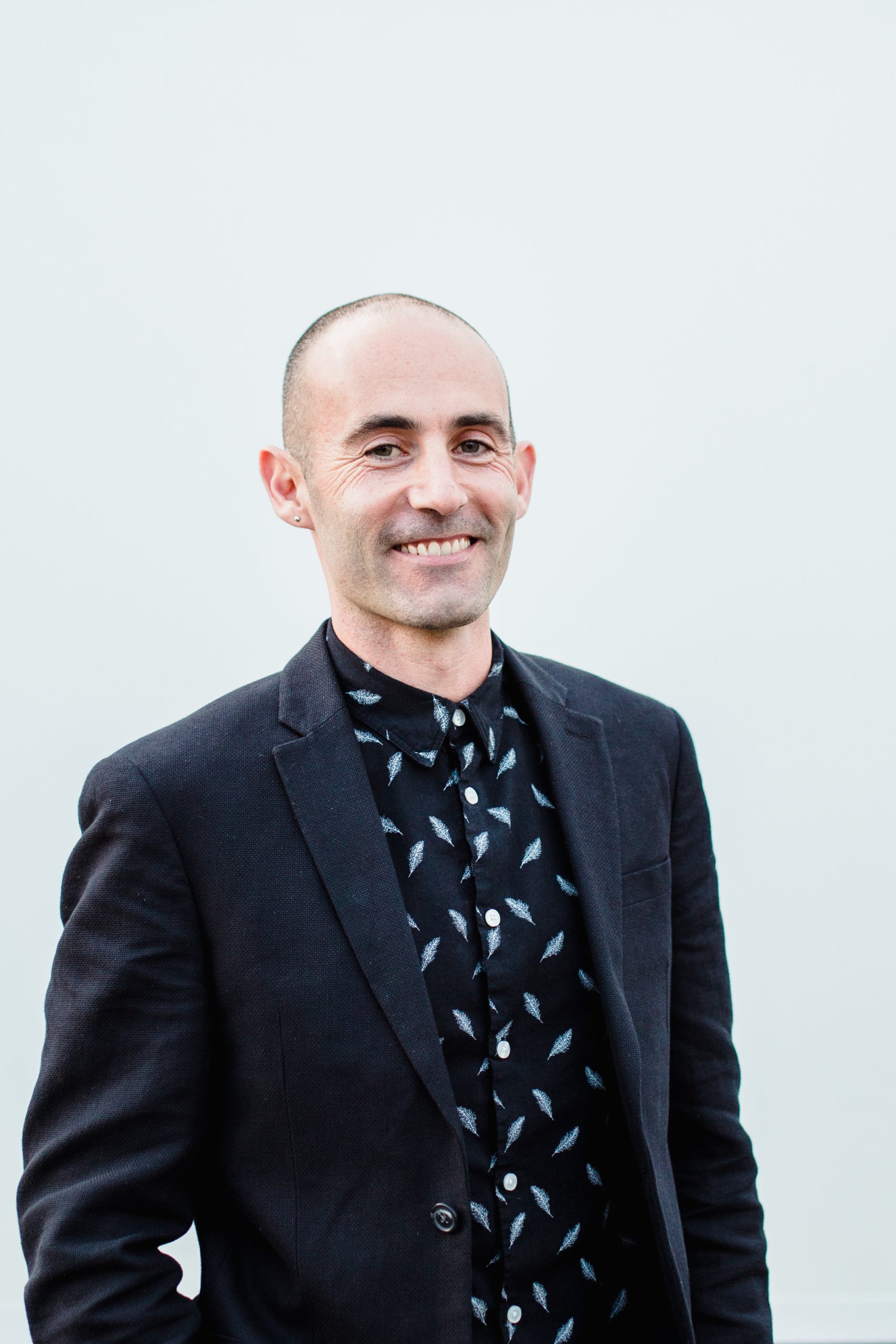We founded Kindling in 2019 after working together for a number of years on bystander intervention – initially with university students and then in football and sport. Our strong creative partnership is built on the synergies and frictions between our different academic, practice and activist backgrounds.
Dr Rachel Fenton is a Senior Lecturer in Law, a Speak Out Guardian, a Diversity Champion and Domestic Abuse Champion at the University of Exeter. Rachel has recently participated in Cultural Competence training by the Georgetown University National Centre for Cultural Competence. Rachel is a national expert on bystander programming for the prevention of harmful behaviours, sexual violence, sexual harassment and domestic abuse and led a multi-disciplinary team for Public Health England on reviewing the literature, developing and evaluating the first evidence-based bystander programme for University settings (The Intervention Initiative). Rachel recently gave evidence in Parliament about the importance of bystander approaches in the workplace for the prevention of sexual harassment. Dr Fenton has been funded by the ESRC to work with Exeter City F.C. and Community Trust and Public Health England to translate know- how into other real-world environments, such as football and sports, and general communities. Developing and testing of a bystander prevention programme for football and sports (Football Onside) – a male-dominated environment – reveals significant positive results across a range of measures. Likewise, the testing, together with Public Health England, of a bystander prevention programme for communities (ABC: Active Bystander Communities) also reveals significant positive results. Dr Fenton’s bystander model The Intervention Initiative has been implemented and adopted and adapted by Universities internationally and nationally and her work has informed and been cited by stakeholders nationally and internationally including Women and Equalities Select Committee Reports on sexual harassment in the workplace and public settings and by the United Nations as well as the UK and Welsh governments and the Ministry of Defence. Rachel has talked about her work in Parliament, on Woman’s Hour, on the Today programme Radio 4, on Radio 5 and her work has been covered often by the BBC, in print) and on film. In her work on Universities and sexual misconduct, she also writes and comments in the Guardian and was recently on Victoria Derbyshire. Rachel has been part of a national team looking at University responses to sexual violence : Student rape survivor – ‘It felt like I was being interrogated’ – BBC News . Rachel is currently leading the first survey of bystander behaviours to domestic abuse during the Covid-19 pandemic for Public Health Wales.
Dr Rachel Fenton is a Senior Lecturer in Law, a Speak Out Guardian, a Diversity Champion and Domestic Abuse Champion at the University of Exeter. Rachel has recently participated in Cultural Competence training by the Georgetown University National Centre for Cultural Competence. Rachel is a national expert on bystander programming for the prevention of harmful behaviours, sexual violence, sexual harassment and domestic abuse and led a multi-disciplinary team for Public Health England on reviewing the literature, developing and evaluating the first evidence-based bystander programme for University settings (The Intervention Initiative). Rachel recently gave evidence in Parliament about the importance of bystander approaches in the workplace for the prevention of sexual harassment. Dr Fenton has been funded by the ESRC to work with Exeter City F.C. and Community Trust and Public Health England to translate know- how into other real-world environments, such as football and sports, and general communities. Developing and testing of a bystander prevention programme for football and sports (Football Onside) – a male-dominated environment – reveals significant positive results across a range of measures. Likewise, the testing, together with Public Health England, of a bystander prevention programme for communities (ABC: Active Bystander Communities) also reveals significant positive results. Dr Fenton’s bystander model The Intervention Initiative has been implemented and adopted and adapted by Universities internationally and nationally and her work has informed and been cited by stakeholders nationally and internationally including Women and Equalities Select Committee Reports on sexual harassment in the workplace and public settings and by the United Nations as well as the UK and Welsh governments and the Ministry of Defence. Rachel has talked about her work in Parliament, on Woman’s Hour, on the Today programme Radio 4, on Radio 5 and her work has been covered often by the BBC, in print) and on film (link to the BBC film again as earlier under universities). In her work on Universities and sexual misconduct, she also writes and comments in the Guardian and was recently on Victoria Derbyshire (link to video). Rachel has been part of a national team looking at University responses to sexual violence : Student rape survivor – ‘It felt like I was being interrogated’ – BBC News . Rachel is currently leading the first survey of bystander behaviours to domestic abuse during the Covid-19 pandemic for Public Health Wales.

Dr Rachel Fenton
Dr Rachel Fenton is a Senior Lecturer in Law, a Speak Out Guardian, a Diversity Champion and Domestic Abuse Champion at the University of Exeter. Rachel has recently participated in Cultural Competence training by the Georgetown University National Centre for Cultural Competence. Rachel is a national expert on bystander programming for the prevention of harmful behaviours, sexual violence, sexual harassment and domestic abuse and led a multi-disciplinary team for Public Health England on reviewing the literature, developing and evaluating the first evidence-based bystander programme for University settings (The Intervention Initiative). Rachel recently gave evidence in Parliament about the importance of bystander approaches in the workplace for the prevention of sexual harassment. Dr Fenton has been funded by the ESRC to work with Exeter City F.C. and Community Trust and Public Health England to translate know- how into other real-world environments, such as football and sports, and general communities. Developing and testing of a bystander prevention programme for football and sports (Football Onside) – a male-dominated environment – reveals significant positive results across a range of measures. Likewise, the testing, together with Public Health England, of a bystander prevention programme for communities (ABC: Active Bystander Communities) also reveals significant positive results. Dr Fenton’s bystander model The Intervention Initiative has been implemented and adopted and adapted by Universities internationally and nationally and her work has informed and been cited by stakeholders nationally and internationally including Women and Equalities Select Committee Reports on sexual harassment in the workplace and public settings and by the United Nations as well as the UK and Welsh governments and the Ministry of Defence. Rachel has talked about her work in Parliament, on Woman’s Hour, on the Today programme Radio 4, on Radio 5 and her work has been covered often by the BBC, in print) and on film (link to the BBC film again as earlier under universities). In her work on Universities and sexual misconduct, she also writes and comments in the Guardian and was recently on Victoria Derbyshire (link to video). Rachel has been part of a national team looking at University responses to sexual violence : Student rape survivor - 'It felt like I was being interrogated' - BBC News . Rachel is currently leading the first survey of bystander behaviours to domestic abuse during the Covid-19 pandemic for Public Health Wales.

Dr Nathan Eisenstadt
Dr Nathan Eisenstadt is a Senior Research Associate at the University of Bristol Medical School, Domestic Violence and Health Group specialising in prevention and response to gender based violence, with a focus on men and boys and masculinity. Nathan’s doctoral research brought anti-oppressive pedagogy together with continental philosophy to propose an ethics of egalitarian conduct across difference. He brings this together with contemplative practices in his training and conflict resolution work delivered internationally. Nathan was lead qualitative evaluator on the Drive Project – a national pilot addressing high risk perpetrators of domestic abuse and has worked with domestic abuse perpetrators in group and 1:1 settings. As Co-investigator on the National Institute for Health Research (NIHR) project ‘Can Abusive Men Change?’ he is currently researching the micro-level dynamics of behaviour change and resistance to change in the context of a domestic violence perpetrator programme. Nathan has delivered the bystander programme, ‘The Intervention Initiative’ in a university setting, has designed, delivered and developed evaluation frameworks for gender equality, LGBT+ inclusivity and violence prevention in schools, and with Rachel Fenton co- designed and delivered ‘Football Onside’ – a bespoke bystander intervention programme for Exeter City Football Club.
Dr Nathan Eisenstadt is a Senior Research Associate at the University of Bristol Medical School, Domestic Violence and Health Group specialising in prevention and response to gender based violence, with a focus on men, boys and masculinity. Nathan’s doctoral research brought anti-oppressive pedagogy together with continental philosophy to propose an ethics of egalitarian conduct across difference. He brings this together with contemplative practices in his training and conflict resolution work delivered internationally. Nathan was lead qualitative evaluator on the Drive Project – a national pilot addressing high risk perpetrators of domestic abuse and has worked with domestic abuse perpetrators in group and 1:1 settings. As Co-investigator on the National Institute for Health Research (NIHR) project ‘Can Abusive Men Change?’ he is currently researching the micro-level dynamics of behaviour change and resistance to change in the context of a domestic violence perpetrator programme. Nathan has delivered the bystander programme, ‘The Intervention Initiative’ in a university setting, has designed, delivered and developed evaluation frameworks for gender equality, LGBT+ inclusivity and violence prevention in schools, and with Rachel Fenton co- designed and delivered ‘Football Onside’ – a bespoke bystander intervention programme for Exeter City Football Club.

What our Clients say

@2020 Kindling. All rights reserved. Core legal terms and conditions
Designed and developed by tocostudio
